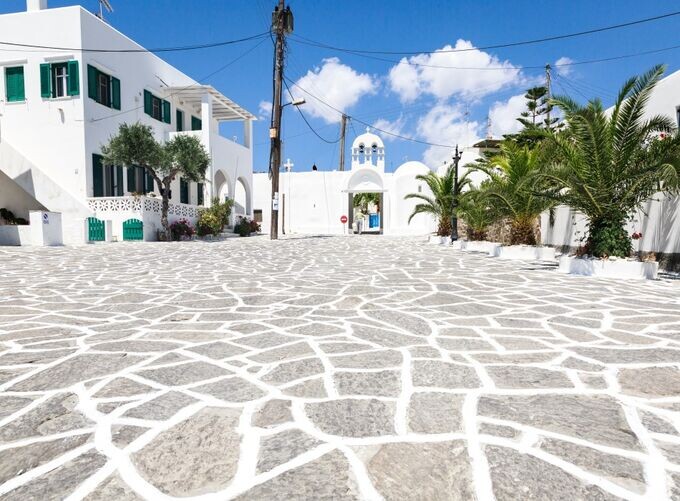
Greece Weather in July: A Guide for a Summer Vacation
July is one of the most popular months to visit Greece, characterized by consistently hot weather, long sunny days, and a vibrant atmosphere across the country. Whether you're drawn to the historic cities, the idyllic islands, or the scenic countryside, understanding the weather in July will help you plan the perfect summer Vacation in Greece. This comprehensive guide will cover Greece’s weather in July, regional variations, activities, travel tips, and more to ensure you make the most of your visit.
Overview of Greece’s Climate in July
July is at the peak of the summer season in Greece, bringing with it the highest temperatures of the year. The weather is predominantly hot and sunny with very little rainfall. Here’s a broad overview of what you can expect:
- Coastal Areas and Islands: Hot temperatures and plenty of sunshine dominate this region, with very little rain. The Mediterranean climate provides warm sea temperatures, making it ideal for beach activities.
- Mainland Lowlands: Expect scorching temperatures and minimal rainfall. The weather is perfect for exploring cities and outdoor attractions, but hydration and sun protection are crucial.
- Mountainous Regions: While still warm, temperatures in the mountains are cooler compared to the lowlands, making it an excellent time for hiking and outdoor exploration.
Average Temperatures Across Greece in July
Temperature ranges in Greece during July vary based on location:
- Athens: In July, temperatures typically range from 22°C to 37°C (72°F to 99°F). The weather is hot and sunny, perfect for exploring the city's ancient landmarks and enjoying outdoor activities.
- Thessaloniki: This northern city experiences temperatures between 22°C and 35°C (72°F to 95°F). The weather is warm and sunny, ideal for sightseeing and enjoying the city's cultural offerings.
- Greek Islands (Mykonos, Santorini, Crete): The islands experience temperatures ranging from 22°C to 35°C (72°F to 95°F). The weather is perfect for beach activities, swimming, and exploring the islands.
- Northern and Mountainous Regions (Metsovo, Zagori, Mount Olympus): These areas experience temperatures between 18°C and 30°C (64°F to 86°F). The cooler temperatures in the mountains are suitable for hiking and exploring natural beauty.
Rainfall and Precipitation Patterns in July
July is one of the driest months of the year in Greece:
- Coastal and Island Regions: Rainfall is minimal, averaging between 0mm and 5mm. The chance of rain is very low, making it perfect for beach days and outdoor activities.
- Mainland Cities: Athens and Thessaloniki experience very little to no rainfall, averaging between 0mm and 5mm. The weather is typically dry and sunny.
- Mountainous Areas: Rainfall can be slightly higher but still low, averaging between 5mm and 10mm. Occasional brief showers might occur, but they are infrequent and do not typically affect outdoor plans.
Regional Weather Variations
Greece’s diverse geography results in varying weather conditions across different regions:
The Greek Islands
- Santorini: In July, temperatures range from 22°C to 34°C (72°F to 93°F). The island experiences hot and sunny weather, ideal for exploring its unique volcanic landscapes, beaches, and historic sites. The warm sea is perfect for swimming and water sports.
- Crete: Crete experiences temperatures from 22°C to 35°C (72°F to 95°F). The weather is ideal for visiting ancient ruins, hiking in the Samaria Gorge, and enjoying the island’s beautiful beaches.
- Mykonos: Known for its lively nightlife and stunning beaches, Mykonos sees temperatures between 22°C and 34°C (72°F to 93°F). The weather is perfect for beach activities, exploring the island’s charming villages, and enjoying the vibrant nightlife.
Mainland Greece
- Athens: The city experiences temperatures between 22°C and 37°C (72°F to 99°F). The hot weather is ideal for sightseeing early in the morning or late in the afternoon. Popular attractions include the Acropolis, the Parthenon, and the Ancient Agora.
- Thessaloniki: Thessaloniki enjoys temperatures ranging from 22°C to 35°C (72°F to 95°F). The warm weather is perfect for exploring the city’s historic sites, waterfront, and vibrant markets.
Mountainous Regions
- Zagori and Metsovo: These areas experience temperatures from 18°C to 30°C (64°F to 86°F). The cooler temperatures make it a great time for hiking, exploring traditional villages, and enjoying the natural beauty of the region.
- Mount Olympus: The highest peak in Greece has temperatures ranging from 18°C to 30°C (64°F to 86°F). The cooler mountain climate is ideal for hiking and exploring the surrounding nature.
Activities and Experiences in Greece During July
July is a fantastic time to experience Greece’s diverse offerings as the weather is consistently warm and sunny:
Beach and Water Activities in Greece
- Beach Visits: The warm sea temperatures and sunny weather make July perfect for beach visits. Enjoy sunbathing, swimming, and relaxing on the sandy shores of Greece’s islands and coastal regions.
- Water Sports: Engage in various water sports, such as snorkeling, scuba diving, and windsurfing. Popular spots include the clear waters of the Aegean Sea around the Cyclades and the Ionian Sea around the islands of Corfu and Zakynthos.
Exploring Historic Sites in Greece
- Ancient Ruins: Explore Greece’s rich history by visiting ancient ruins and historic sites. The Acropolis in Athens, the ancient city of Delphi, and the theater of Epidaurus are must-see attractions.
- Archaeological Museums: Discover Greece’s history and artifacts in world-class museums such as the National Archaeological Museum in Athens and the Archaeological Museum of Thessaloniki.

Outdoor Adventures in Greece
- Hiking and Trekking: The cooler temperatures in mountainous regions make July ideal for hiking and trekking. Explore trails in the Pindus mountain range, Zagori, and the area around Mount Olympus.
- Exploring Nature: Visit Greek national parks and natural reserves to experience Greece’s diverse landscapes. The Samaria Gorge in Crete and the Vikos Gorge in Zagori offer stunning scenery and hiking opportunities.
Cultural Events and Festivals
- Local Festivals: July is a lively month for cultural events and festivals. Experience local traditions, music, dance, and cuisine at various festivals throughout the country.
- Music and Arts Events: Enjoy performances and exhibitions at music and arts festivals held in cities like Athens and Thessaloniki. The Athens and Epidaurus Festival is a highlight of the summer season.
Culinary Experiences
- Greek Cuisine: Savor traditional Greek dishes featuring fresh summer ingredients. Enjoy meals at local tavernas and seaside restaurants, sampling dishes such as grilled seafood, fresh salads, and delicious Greek meze.
- Wine Tasting: Explore Greece’s wine regions and sample local wines. Wine tours in regions like the Peloponnese, Santorini, and Crete offer opportunities to visit vineyards and taste a variety of wines.
Packing Tips for Greece in July
Proper packing is essential for enjoying your July visit to Greece:
- Light, Breathable Clothing: Pack light and breathable clothing to stay cool in the hot weather. Opt for fabrics like cotton and linen that are comfortable and airy.
- Sun Protection: The sun can be intense in July, so pack sunscreen with high SPF, sunglasses, and a wide-brimmed hat to protect yourself from UV rays.
- Comfortable Footwear: Comfortable walking shoes are essential for exploring cities and historical sites. Bring sandals or flip-flops for the beach and casual outings.
- Swimwear: Pack swimwear for beach visits and water activities. Include a cover-up for trips to the beach or pool.
Advantages of Visiting Greece in July
Traveling to Greece in July offers several benefits:
- Ideal Beach Weather: The warm sea temperatures and abundant sunshine create perfect conditions for beach activities and water sports.
- Long Daylight Hours: Enjoy long, sunny days with extended daylight hours, allowing ample time for sightseeing and outdoor experiences.
- Vibrant Atmosphere: July is a lively month with numerous festivals, cultural events, and a vibrant social scene, particularly on the islands and in major cities.
- Variety of Activities: From exploring ancient ruins to enjoying outdoor adventures and culinary experiences, Greece offers a diverse range of activities to suit all interests.
Disadvantages and Considerations
While July offers many advantages, there are some considerations:
- High Temperatures: The heat can be intense, especially in the lowlands and southern regions. Stay hydrated, avoid midday sun, and take breaks in the shade.
- Crowds: July is a peak tourist season, leading to larger crowds at popular attractions and higher prices for accommodations and flights. Book early to secure the best options.
- Higher Prices: Accommodation and flight prices are typically higher during the peak summer season. Consider booking in advance and looking for deals or discounts.
Greece: the Mediterranean’s holiday gem.
July is a fantastic time to visit Greece and Egypt, with its consistently hot weather, long sunny days, and vibrant atmosphere. Whether you're exploring ancient ruins, relaxing on beautiful beaches, or enjoying cultural festivals, Greece offers a rich and diverse travel experience during this peak summer month. By understanding the weather patterns and packing accordingly, you can make the most of your visit and enjoy everything Greece has to offer in July.



